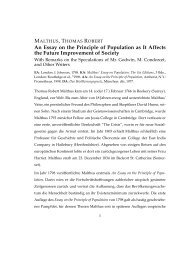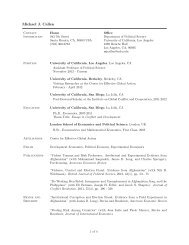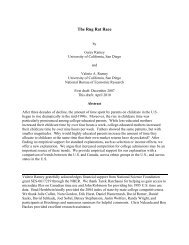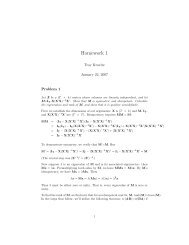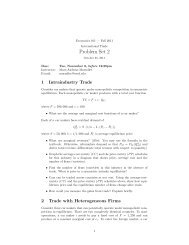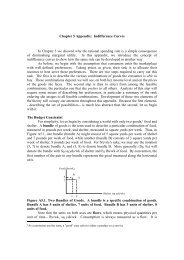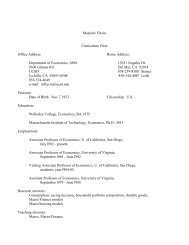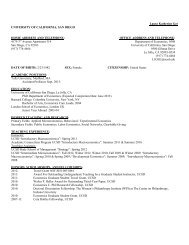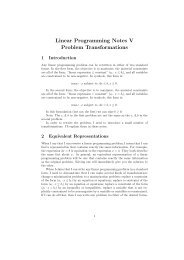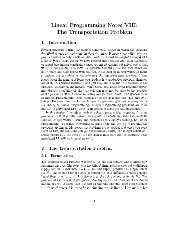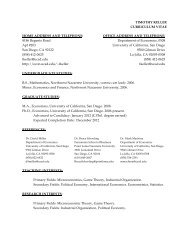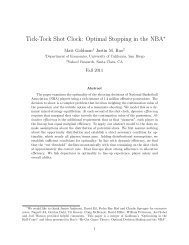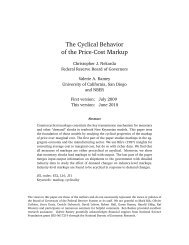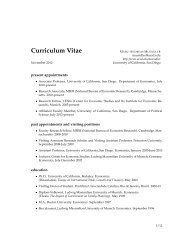Endogenous derivation of 'money' - UC San Diego Department of ...
Endogenous derivation of 'money' - UC San Diego Department of ...
Endogenous derivation of 'money' - UC San Diego Department of ...
You also want an ePaper? Increase the reach of your titles
YUMPU automatically turns print PDFs into web optimized ePapers that Google loves.
464 R. M. Starr<br />
let<br />
<br />
m + i if m + i ≤ N,<br />
m ⊕ i =<br />
m + i − N if m + i>N.<br />
That is, m ⊕ i denotes m + i mod N, skipping 0 (since good 0 is used primarily<br />
as an input to the transaction process). Recall that [m, n] denotes a household<br />
endowed with good m, strongly preferring good n. Using the notation above, let<br />
H1 = {[m, m ⊕ 1]|m =1, 2, ..., N; r [m,m⊕1]<br />
m = A > 0}. H1 characterizes a<br />
population <strong>of</strong> N households with the same size <strong>of</strong> initial endowment, so that no<br />
pair <strong>of</strong> them have reciprocal matching endowments and preferences but so that<br />
their endowments in aggregate can be reallocated to make each one significantly<br />
better <strong>of</strong>f (roughly by arranging the households clockwise in a circle ordered by<br />
endowment good and having each household [m, m⊕1] send his endowment one<br />
place counterclockwise).<br />
Example 3.1. Let the population <strong>of</strong> households be H = H 0 ∪ H 1 . Let C {i,j} be<br />
described by (TCL). Let 0



